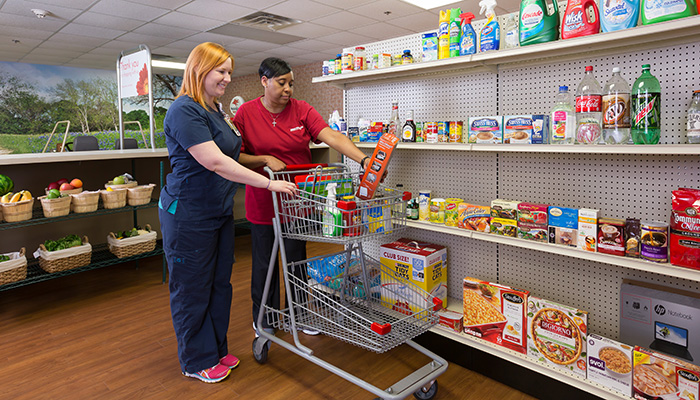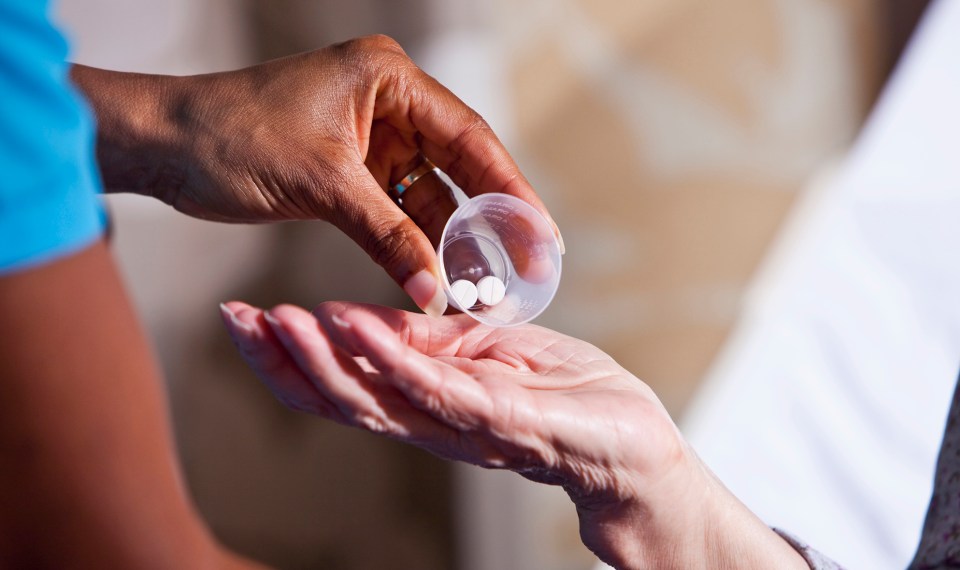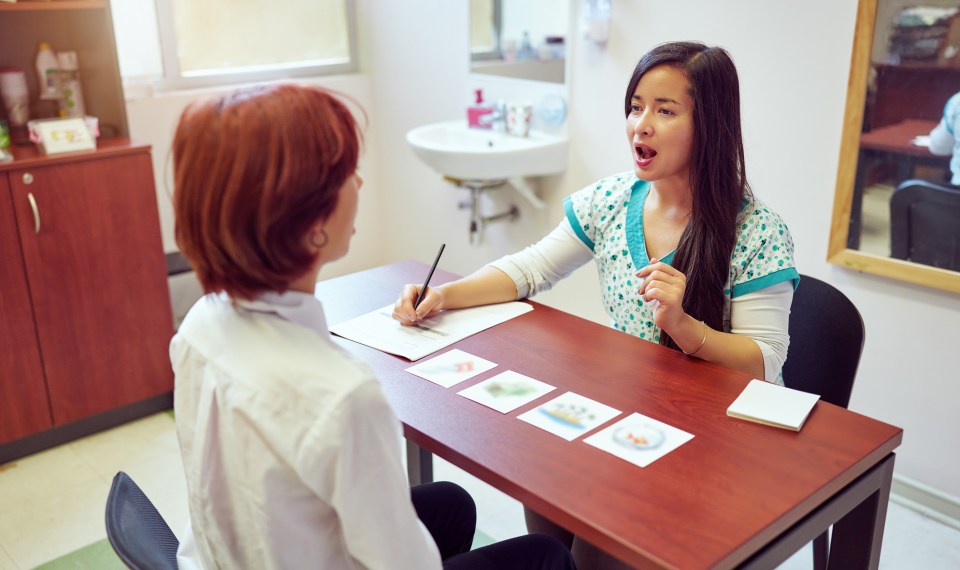Encompass Health developed REAL Therapy to let patients perform everyday activities in the hospital setting, so they are more prepared when they go back to their home and communities
Patients who experience a neurologic event such as a stroke or brain injury are often overwhelmed at how quickly and completely their lives have changed.
In the blink of an eye they go from living their normal, everyday lives to needing help with basic daily tasks. Families and caregivers are trying to not only adapt to the changes they see in their loved one, but also to be sure they are getting the best medical care and therapy available.
As patients begin the journey back to independence, the importance of functional therapy cannot be overstated. The foundation of a successful recovery is therapy that focuses on the actual activities the patient will be doing at home and in the community. When patients practice these specific tasks, the brain is better able to overcome the damage to form new pathways that assist with recovery of function.
While many research studies have shown the benefits of functional therapy related to the patient’s daily activities, the hospital environment itself is designed to make things as easy as possible for patients. Many hospitals and rehab settings do not have the dedicated space or tools to simulate normal daily activities for their patients. This can lead to difficulty in the transition from hospital to the community, where the patient discovers some things are much more difficult than they were anticipating.
With this in mind, Encompass Health has developed a function-based therapy environment called Realistic Environment Applied Learning, or REAL™ Therapy.
REAL Therapy is a community simulation gym that has a combination of different modules designed to mimic normal daily activities for patients. The modules include some of the most commonly visited locations for patients following discharge.
Available modules include a grocery store, restaurant, deli, laundry room/laundromat and car transfer/gas station. These modules are ideal for therapy with a patient recovering from a stroke or brain injury, because the context of each area reinforces the physical and cognitive skills the patient needs to work on.
For example, if a patient has difficulty grasping things with his left hand, how can he gather his groceries and push the shopping cart effectively? If a patient has trouble speaking clearly, how can she let the waitress know what she would like to order? If a patient has difficulty standing up, how can he get from a wheelchair into the front seat of the car?
With REAL Therapy, the patient has a chance to practice the very same activities they will be performing in the community. This generates greater confidence and safety, and also increases the patient’s perception of independence. Families and caregivers are more comfortable getting back out into the community with their loved one because they have seen exactly what they can do in REAL Therapy. This return to community involvement is directly linked to improved quality of life in recovering patients.
REAL Therapy was created as part of a treatment philosophy focused on returning a patient to function. For patients and families who are struggling to imagine what their life will be like going forward, it gives hope and reassurance that they can get back to the activities they enjoy. REAL Therapy is a unique and powerful tool, and one of the keys to a successful outcome in neurologic recovery.
The content of this site is for informational purposes only and should not be taken as professional medical advice. Always seek the advice of your physician or other qualified healthcare provider with any questions you may have regarding any medical conditions or treatments.




